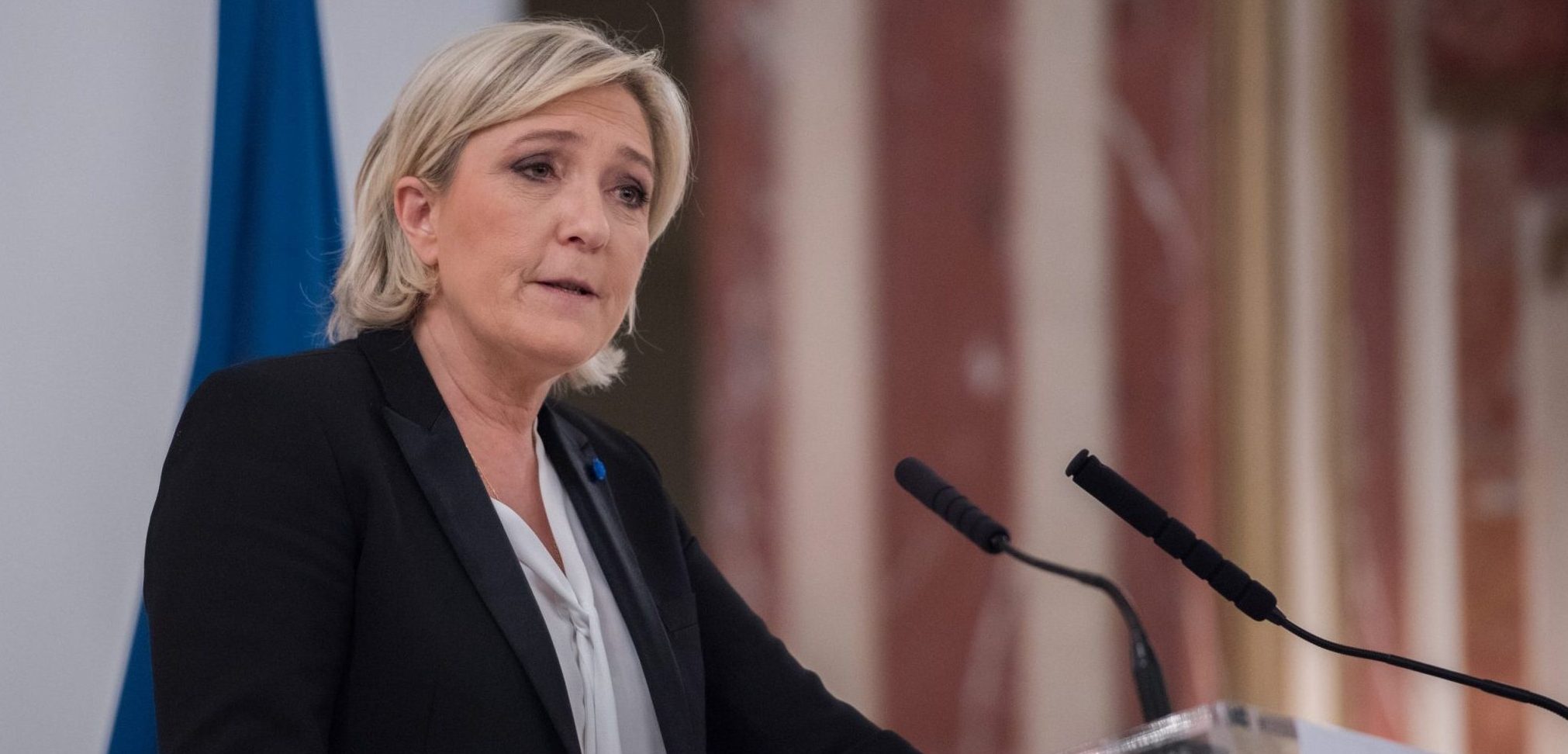French voters can be confident that no matter who they vote for in the second round of their presidential election, the process will reflect the will of the French people. But if they hope to have similar confidence in the integrity of future elections, they should carefully consider whom to vote for on Sunday.
As I’ve learned through experience in the United States and elsewhere, interference in a democratic country’s elections doesn’t only come from authoritarian foreign actors such as Russia, China, or Iran. It can also come from domestic actors. And while Marine Le Pen may not be undermining the legitimacy of France’s elections to the extent that former U.S. President Donald Trump and Hungarian Prime Minister Viktor Orbán did in their countries, she has a history of actions that make French elections more vulnerable to election interference, some of which are outlined below.
Le Pen has unnecessarily exposed herself and her country to foreign interference by repeatedly accepting financial support from actors with a documented history of interfering in the conduct of free and fair elections.
During her 2017 presidential campaign, Le Pen’s party came under scrutiny for a €9.4 million ($12.2 million) loan it received in 2014 from a now-defunct Russian bank—assistance that amounted to Russian state-sanctioned interference in France’s political system. Earlier this year, Le Pen disclosed that notwithstanding the fallout from that loan, she had received a €10.7 million ($11.8 million) loan for her campaign from Hungary’s MKB Bank, whose major shareholders include businessmen close to Prime Minister Viktor Orbán. Autocrats like Orbán and Russian President Vladimir Putin have continuously demonstrated a desire to weaken and undermine democracy. Accepting funds from entities with connections to these leaders creates incentives for other bad actors, foreign and domestic, to try to interfere in French elections. And if Le Pen wins the presidency, these loans signal that there will be few, if any, consequences for such behavior.
Le Pen appears unable or unwilling to support efforts to protect France’s elections.
When it became clear that France’s 2017 presidential election would be a target of foreign interference, France’s National Cybersecurity Agency (ANSSI), whose mission is to ensure the integrity of electoral results, offered to meet with and educate the staffs of all the candidates. Then-candidate Emmanuel Macron and his team, for example, met with ANSSI and subsequently made changes to their security posture based on ANSSI feedback to reduce the likelihood of being hacked. Marine Le Pen’s National Front was the only party that rejected ANSSI’s offer to even meet.
Since the 2017 election, there have been a number of government-led initiatives to help further secure French elections, including the passage of the 2018 law “On the Fight Against the Manipulation of Information”; the establishment of Viginum, a national agency to combat information manipulation; and the resumption of ANNSI meetings with cybersecurity managers of the candidates’ campaign staffs. At no point has Le Pen or her National Front Party shown real support for such initiatives or put forth alternatives that could better protect France’s 2022 presidential election. This silence, particularly in light of Russia’s recent invasion of Ukraine (which many believe has increased the risk of foreign interference in France’s presidential election) is at best troubling, and at worst dangerous. While combating election threats requires cooperation from all segments of society, the government remains the single most important actor in confronting them. France’s next president must be committed to mounting a meaningful defense against election interference efforts; they should not welcome or ignore them.
Le Pen does not clearly respect a free press, which is critical to combatting election interference.
Earlier this month, at a press conference on democracy, institutions, and the exercise of power, Le Pen said that she would decide who was a journalist and who could question her at a press conference. In 2017, France withstood Russian interference in its presidential election, in part, by enlisting newspapers such as Le Monde to create platforms that would verify the reliability of a piece of information’s sourcing. According to a previous Center for Strategic and International Studies study, the French media environment has historically benefited from structural advantages that allow it to counter disinformation in ways that are not readily available in other countries. For example, France’s media environment has traditionally been dominated by trusted mainstream media sources, which provides a certain level of inoculation from conspiracy theories and false information. If French media do not continue to be afforded adequate access to the country’s election processes and elected leaders, combatting disinformation could become much more difficult, and fact-checking false claims could quickly be perceived as a partisan issue rather than one of national security.
Le Pen and her party regularly cast doubt on the integrity of legitimate election processes.
While there can be legitimate differences of opinion over whether France’s longstanding ban on postal voting is still warranted, insisting that the ban should remain because of significant, inherent fraud risks in mail voting needlessly casts doubt on the integrity of those who vote this way (notably voters held in pre-trial facilities and those serving prison sentences that do not result in disenfranchisement) and mirrors the rhetoric other autocrats have used to try and undermine mail voting. If mail voting was so inherently suspect, it is hard to see how it would have become such a popular option in other European countries, including Germany and the United Kingdom.
Keeping France robustly democratic requires electing leaders who support protecting its election processes, not those whose actions undermine these processes or worse.
The views expressed in GMF publications and commentary are the views of the author alone.





